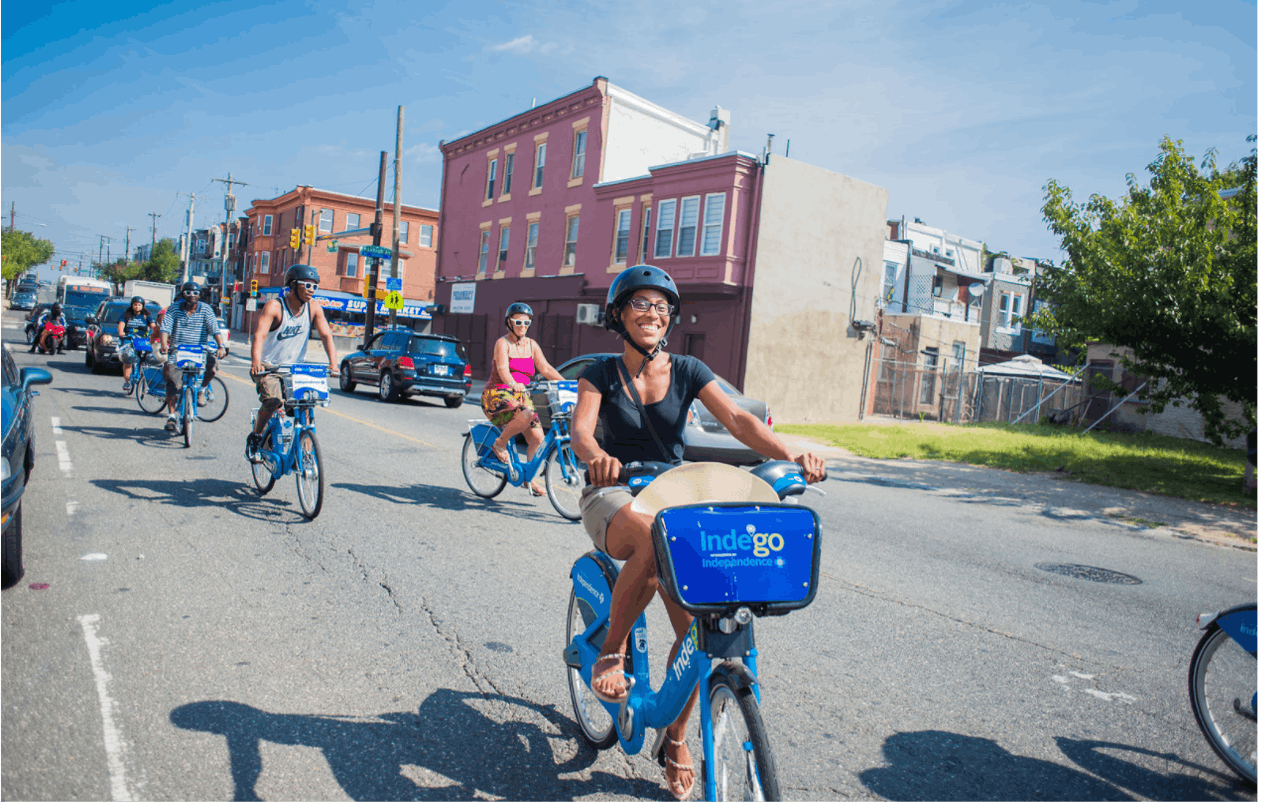How Can We Reach Underserved Communities?
By: PeopleForBikes Staff
How well is a place making purposeful moves to make bike riding accessible for all people? In an attempt to answer this question, our Reach score provides one perspective on how well a community’s low-stress network serves all members. Using demographic data to identify the location of traditionally underserved communities, we can evaluate the relationship between physical bike networks and assess the differences in access and connectivity for these neighborhoods compared to the city as a whole.
The story Reach tells is limited. It’s only a snapshot of how a city’s bike network currently serves (or doesn’t serve) traditionally underrepresented voices in community planning. At this time, Reach does not evaluate a demonstrated intentionality to address transportation inequities. This leaves us hesitant to celebrate success without knowing whether we are praising a community for deliberate actions, thoughtful planning, and prioritized investment in these neighborhoods, or the mere beneficiaries of historical circumstance relative to how their existing bike networks have formed thus far. We encourage everyone to ask important questions about which populations are not being served or represented by mobility projects. And then to turn those questions and conversations into actions.
With that in mind, we’d like to highlight some projects and efforts that are moving certain cities in the right direction.
Philadelphia, Pennsylvania
With credit-free payment options and stations in low-income neighborhoods, Philadelphia’s Indego system has been considered a model for making cycling more inclusive. They offer bilingual classes, including learn-to-ride courses for adults. Their surveys and station guides are also offered in multiple languages, and they have print materials for those who don’t have easy access to the internet.
Waffiyyah Murray, Better Bikeshare Partnership Program Manager for the City of Philadelphia, says reaching underserved populations has a lot to do with communication. Many times, Murray says, you can follow trends in health disparities or areas that lack other resources in order to find the places that haven’t been invested in. Then, she says, go to those places and talk to the people who live there. “Making sure you have bikes and bike stations in the neighborhoods that you’re looking to reach means going to those neighborhoods and talking to people so that they know the bikes are for them, and so they understand how to use them.”
Once bikes are on the ground, engagement has to continue. Murray says it’s not a one-off. “We work with partners in the areas — schools and churches and nonprofits — so that the outreach is ongoing.” Together with Indego, BBSP has programming going on all the time to teach people how to ride, and how to get the most out of the bikes. Indego also just added e-bikes to their Philly fleets and have found that ridership is up in many of their traditionally underserved neighborhoods.

Memphis, Tennessee
As one of our Big Jump cities, Memphis — specifically South Memphis — has been working to make bikes accessible to the people who need them the most. Nick Oyler, Bikeway and Pedestrian Manager, says that biking can play an important role in the city’s transportation network. According to Oyler, “In a city where a quarter of the people are living below the poverty line and might not have access to a car, biking isn’t just a fad or exercise, it’s how they get around, how they do their daily lives.”
Part of the plan has included Explore Bikeshare. According to Roshun Austin, Explore Bikeshare board member, “From its inception, Explore Bike Share has vowed to prioritize neighborhood needs, utilizing the system to serve all of Memphis — not just where the city sees density on a map.” Austin says they’re working to execute equity-oriented strategies such as bike safety education, ambassador programs, and workforce development partnerships.
Pittsburgh, Pennsylvania
One of our measures for Reach includes ridership among women — places score higher when there are more women riding. We’re looking to reward places where the inclusion of women is built into infrastructure.
Bike Pittsburgh, an organization that puts on women and non-binary programming, took several tips from the Bike Collective Network, an online resource that connects people working on not-for-profit biking projects. BCN’s “Starter Kit” teaches how to build a shop, how to expand reach, and how to put on a wider variety of inclusive events. They aim to help make roads open and welcoming for all people on bikes, and Pittsburgh is a great example of the resources in action.
Related Locations:
